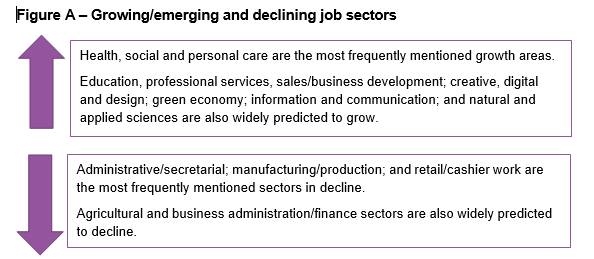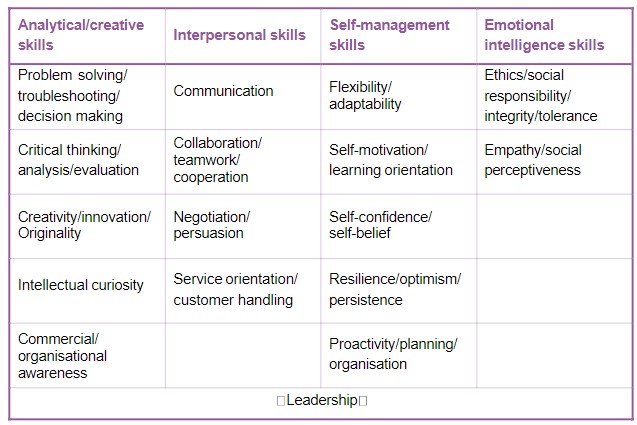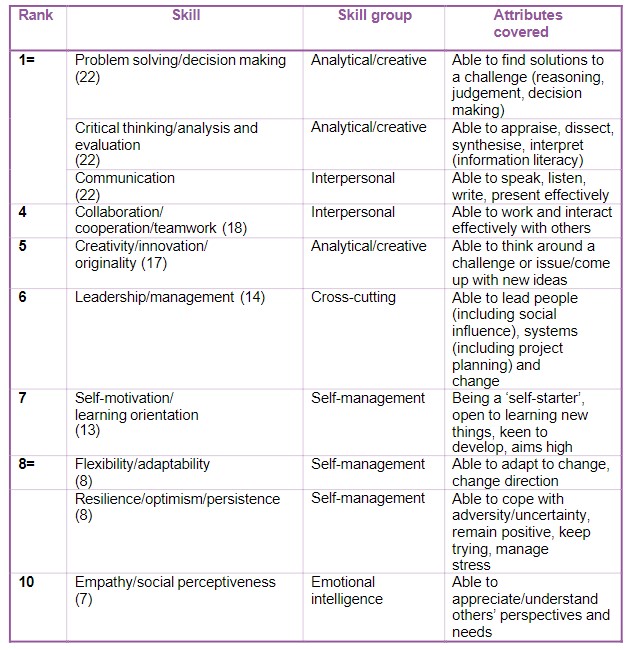The skills imperative 2035: Essential skills for tomorrow’s workforce

In this Spotlight, we temporarily move away from the world of specific pedagogical research to a wider topic which is currently being explored by NfER in a 5-year research programme - The skills imperative 2035: Essential skills for tomorrow’s workforce.
The programme is funded by the Nuffield Foundation who describe the project as follows on their website:
“This programme will investigate how demand and supply of essential employment skills is likely to change over the next 15 years and how these skills can be developed through the education system.
New technologies, coupled with major demographic and environmental change, are predicted to transform employment over the coming decades. Skills such as creativity, critical thinking, team work, problem-solving and resilience are likely to become increasingly important for jobs across the economy.
It is crucial that we support the future workforce to develop these essential employment skills if we are to avoid widespread under-employment and enduring social and economic problems. However, there is currently only limited understanding about the relative importance of different essential employment skills, and how the education system can best support young people to develop them.”
The first report of the research programme has been published (link here) and consists of a background review (using over 5000 sources) to attempt to define:
- What the world of work will look like in 2035
- Which essential employment skills will be in demand and how should we prepare
It is a fascinating and informed piece of ‘horizon scanning’ which highlights, among other things, the enduring impact of the Covid pandemic on the acceleration of digitisation, automation and the development of AI. This in turn leads to some initial predictions about Growing and declining job opportunities in the 2035 world of work.

But as educators, perhaps the most interesting findings are around the “essential employment skills” which will be in demand as these have direct implications for our curricula in all phases of education.
This report finds that wider skills such as creativity, critical thinking, teamwork, problem-solving and resilience are expected to be critical for future employment, and therefore, the report suggests, need to be prioritised.
In addition to literacy and numeracy, and technical and digital skills, commentators identify a range of transferable skills, which will become ever more important in the word of work
These are categorised in the report as
a) analytical/creative;
b) interpersonal;
c) self-management;
d) emotional intelligence skills.
These are expressed as a taxonomy of related skills and attributes:
Figure B – Essential employment skills taxonomy

These skills and attributes are then ‘ranked’ by how frequently they are mentioned within the sources reviewed, with the ‘Top 10’ being as follows:

The report then begins to consider what needs to happen in education and the workplace to ensure these are developed equitably. The discussion focuses on 3 themes:
- The emergence and development of skills ‘frameworks’;
- Emerging curriculum, pedagogic, and assessment approaches;
- Growing recognition of the need for ‘real world’ learning and experience.
It cites the fact that documents/commentators calling for improvements to the current educational offer to better develop essential employment skills focus on:
- Defining and agreeing the essential skills
- Prioritising and valuing skills:
- Curriculum and extra-curricular remodelling:
- Pedagogical clarity and guidance for developing essential employment skills
- Teacher development
- Assessment that can measure the acquisition of skills.
The document concludes with a summary of the implications of this first set of findings for the remainder of this extensive research programme. We anticipate a number of interim reports before the project concludes in late 2025.
https://www.nuffieldfoundation.org/project/the-skills-imperative-2035
To read our other Spotlight on Evidence posts, click here.
To sign up to receive new Spotlight on Evidence posts directly to your inbox, click here.
You can download this article below.
